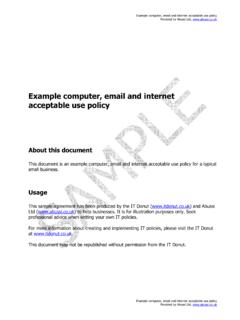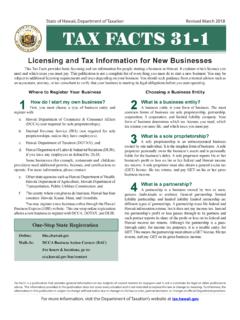Transcription of AFFORDABLE CARE ACT PENALTIES - SHRM
1 AFFORDABLE CARE ACT PENALTIESThe following is a general overview of the PENALTIES that may apply if employers do not comply with key provisions under Health Care Reform. The information is subject to change based on new government requirements or amendments to the law. Additionally, your company or group health plan may be exempt from certain requirements and/or subject to more stringent requirements under your state s laws. If you have any questions regarding your obligations, please consult knowl-edgeable employment law Note: The AFFORDABLE Care Act (ACA) amends various pre-existing federal laws, including the Internal Revenue Code (IRC) and the Employee Retirement Income Security Act (ERISA). Therefore, enforcement of many ACA requirements may be carried out through the mechanisms provided for in those laws. For purposes of this chart: The term $100 excise tax refers to a penalty tax, imposed on employers under the IRC, of $100 per affected individual for each day the plan is not in compliance+.
2 The term ERISA PENALTIES refers to a civil action by the Department of Labor (DOL) or plan participants or beneficia- ries to compel the plan or sponsor to comply with ERISA. Civil money PENALTIES may also must provide written notice about the Health Insurance Exchange (Marketplace) to each new employee at the time of hiring, within 14 days of the employee s start for Noncompliance: There is no fine or penalty for failing to provide the must provide reasonable break time for an employee to express breast milk for her nursing child for 1 year after the child s birth, as well as a place to do so (other than a bathroom) that is shielded from view and free from intrusion from co-workers and the for Noncompliance: Any employee who is terminated or otherwise discriminated against may file a retaliation complaint with the DOL or may file a private cause of action seek-ing appropriate remedies including, but not limited to, employment , reinstatement, lost wages and liquidated damages.
3 The DOL can also seek injunctive relief in federal district court and may obtain reinstatement and lost wages for the : Employers with fewer than 50 employees are not subject to the break time requirement if compliance would impose an undue must withhold Additional Medicare Tax at a rate of on wages or compensa-tion paid to an employee in excess of $200,000 in a calendar for Noncompliance: Employers that do not deduct and withhold Additional Medicare Tax as required are liable for the tax, unless the tax they failed to withhold is paid by the employ-ee. Even if not liable for the tax, employers that do not meet their withholding, deposit, reporting and payment responsibilities for Additional Medicare Tax may be subject to the applicable pen-alties for willfully failing to deduct and EMPLOYERS (NO GROUP HEALTH PLAN REQUIRED)Exchange NoticeBreak Time for Nursing MothersAdditional Medicare Tax for High EarnersApplicable large employers or ALEs (generally those with 50 or more full-time employees, including full-time equivalents) must offer AFFORDABLE health insurance that provides a minimum level of coverage ( minimum value ) to full-time employees and their dependents OR pay a penalty tax if any full-time employee is certified to receive a premium tax credit for purchasing coverage on the Health Insurance Exchange (Marketplace).
4 PENALTIES for Noncompliance: There are two circumstances under which ALEs may owe a penalty:1. Employers Not Offering Coverage: For 2019, an ALE that does not offer coverage or that offers coverage to fewer than 95% of its full-time employees (and their dependents) during the calendar year owes a penalty equal to the number of full-time employees employed for the year (minus up to 30) multiplied by $2,500, as long as at least one full-time employee receives a premium tax credit. For an ALE that offers coverage for some months but not others during the calendar year, the pen-alty is computed separately for each month for which coverage was not offered. The amount of the penalty for the month equals the number of full- time employees employed for the month (minus up to 30) multiplied by 1/12 of $2,500. For 2020, the rate is $2, Employers Offering Coverage That Is Not AFFORDABLE or Does Not Provide Minimum Value: For an ALE that offers coverage to at least 95% of its full-time employees (and their dependents) in 2019 but has one or more full-time employees who receive a premium tax credit, the penalty is computed separately for each month.
5 The amount of the penalty for the month equals the number of full-time employees who receive a premium tax credit for that month multiplied by 1/12 of $3,750. The penalty is the lesser of the amount calculated or the amount that would be owed if the employer did not offer coverage. For 2020, the rate is $3, employers subject to pay or play (generally those with 50 or more full-time employees, including full-time equivalents) are required to report certain information to the IRS and to their employees regarding compliance with the pay or play provisions and the health care coverage they have for Noncompliance: General reporting penalty provisions for failure to file correct information returns and employee statements may apply ranging from $50-$270 per return, with a maximum penalty of over $3 million per year (adjusted for inflation). Lower PENALTIES may be applicable to employers with gross receipts of $5 million or less.
6 In certain circumstances, PENALTIES may be payment plans arrangements under which an employer reimburses an employee for some or all of the premium expenses incurred for an individual health insurance policy or uses its funds to directly pay the premium for an individual policy are considered group health plans that do not comply with the ACA (with exceptions, such as certain types of HRAs). PENALTIES for Noncompliance: $100 excise tax; ERISA that offer dependent coverage must continue to make the coverage available until a child reaches age 26, regardless of other coverage for Noncompliance: $100 excise tax; ERISA EMPLOYERS WITH 50+ EMPLOYEESALL EMPLOYERS SPONSORING GROUP HEALTH PLANSE mployer Shared Responsibility ( Pay or Play )Employer Information Reporting on Health Insurance CoverageNote: Self-insured employers providing minimum essential health coverage (regardless of size) are subject to a separate set of information reporting requirements; however, the PENALTIES for noncompliance are the Payment Plans ProhibitedDependent Coverage to Age 26 Plans cannot impose lifetime or annual dollar limits on coverage of essential health benefits.
7 PENALTIES for Noncompliance: $100 excise tax; ERISA : Health plans may continue to limit the number of visits to health providers and days of treatment so long as the visit or day limit does not amount to a dollar cannot exclude individuals from coverage or limit or deny benefits on the basis of pre-ex-isting medical for Noncompliance: $100 excise tax; ERISA cannot use a waiting period the time that must pass before coverage for an employee or dependent who is otherwise eligible to enroll under the terms of the plan can become effec-tive that exceeds 90 for Noncompliance: $100 excise tax; ERISA sponsoring a health-contingent wellness program in connection with a group health plan ( , a program that requires an individual to satisfy a standard related to a health factor in order to obtain a reward) must confirm the program complies with revised nondiscrimination for Noncompliance: $100 excise tax; ERISA must provide an SBC to participants and beneficiaries at several points during the enroll-ment process and upon request, explaining what the plan covers and what it for Noncompliance: Plans that willfully fail to provide the required information will be subject to a fine of up to $1,156 for each failure (each participant or beneficiary constitutes a separate offense).
8 Plans are also generally subject to the $100 excise tax and ERISA must ensure that participants and beneficiaries are provided with notice of any material modification that would affect the content of the SBC (and that occurs other than in connection with coverage renewal or reissuance) no later than 60 days prior to the effective date of the for Noncompliance: Plans that willfully fail to provide the required information will be subject to a fine of not more than $1,156 for each failure (each participant or beneficiary con-stitutes a separate offense). Plans are also generally subject to the $100 excise tax and ERISA with fully insured plans are responsible for distributing rebates, received as a result of insurers not meeting specific standards related to how premium dollars are spent, to eligible plan enrollees where for Noncompliance: Any portion of a rebate constituting plan assets must be handled in accordance with ERISA s fiduciary responsibility provisions.
9 Fiduciaries that do not follow the basic standards of conduct may be personally plan years ending on or after Oct. 1, 2012, and before Oct. 1, 2019, employers that sponsor certain self-insured plans including HRAs that are not treated as excepted benefits must pay fees to fund the Patient-Centered Outcomes Research Institute (fees are filed annually using No Lifetime or Annual LimitsNo Pre-Existing Condition Exclusions90-Day Limitation on Waiting PeriodsNondiscrimination for Wellness ProgramsSummary of Benefits and Coverage (SBC)Notice of Material ModificationMedical Loss Ratio (MLR) Rebates PCORI Fees for Employers Sponsoring Self-Insured PlansForm 720 and are due no later than July 31 of the year following the last day of the plan year to which the fee applies). PENALTIES for Noncompliance: Standard PENALTIES related to late filing or late tax payment gen-erally apply, but these PENALTIES may be waived or abated if the employer has reasonable cause and the failure was not due to willful who must file 250 or more Forms W-2 for the preceding calendar year and who spon-sor a group health plan are required to report the cost of coverage provided to each employee on the Form W-2 (provided to employees in January), with certain for Noncompliance: General reporting penalty provisions for failure to file correct in-formation returns and employee statements may apply ranging from $50-$270 per return, with a maximum penalty of over $3 million per year (adjusted for inflation) with certain exceptions if the failure is due to reasonable cause and not willful Date Delayed.
10 Fully insured plans must comply with the rules prohibiting discrimination in favor of highly compensated individuals, which are currently applicable to self-insured for Noncompliance: $100 excise tax; ERISA PENALTIES . Compliance with the nondis-crimination provisions will not be required (and thus, any sanctions for failure to comply will not apply) until after regulations or other administrative guidance of general applicability are : Cafeteria plan health benefits remain subject to the nondiscrimination requirements of Internal Revenue Code section plan must include a statement indicating that the plan believes it is a grandfathered plan, along with certain other information, in any plan materials provided to participants or beneficia-ries describing plan for Noncompliance: Loss of grandfathered status, which requires the plan to come into compliance with all ACA provisions that previously did not apply because the plan was must cover certain preventive services delivered by in-network providers without cost-shar-ing (with exceptions for providing contraceptive coverage for certain entities with sincerely held religious beliefs or moral convictions).
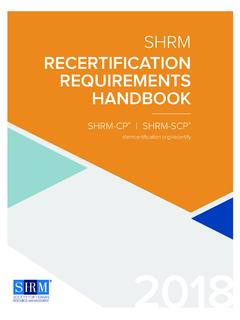
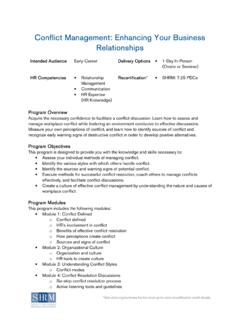
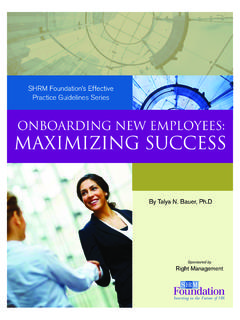
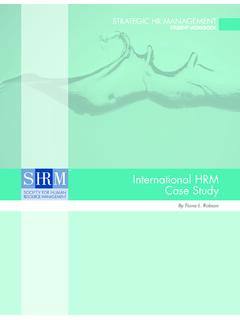
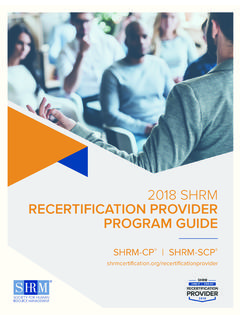
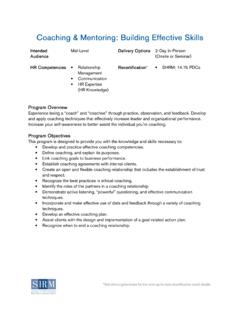

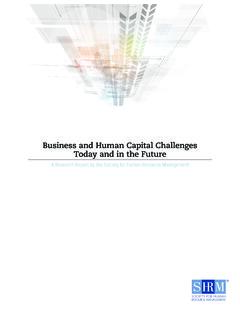


![Agreement For Trainee Position At [Company Name]](/cache/preview/c/2/a/d/9/f/b/6/thumb-c2ad9fb6d6fbc41727ddd0774ce62d01.jpg)

